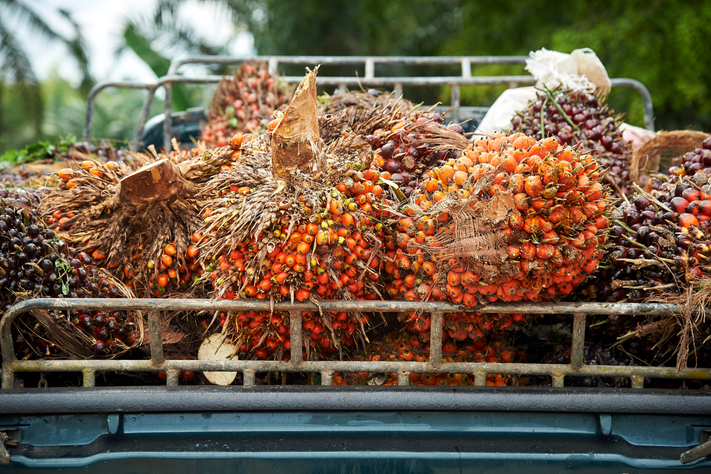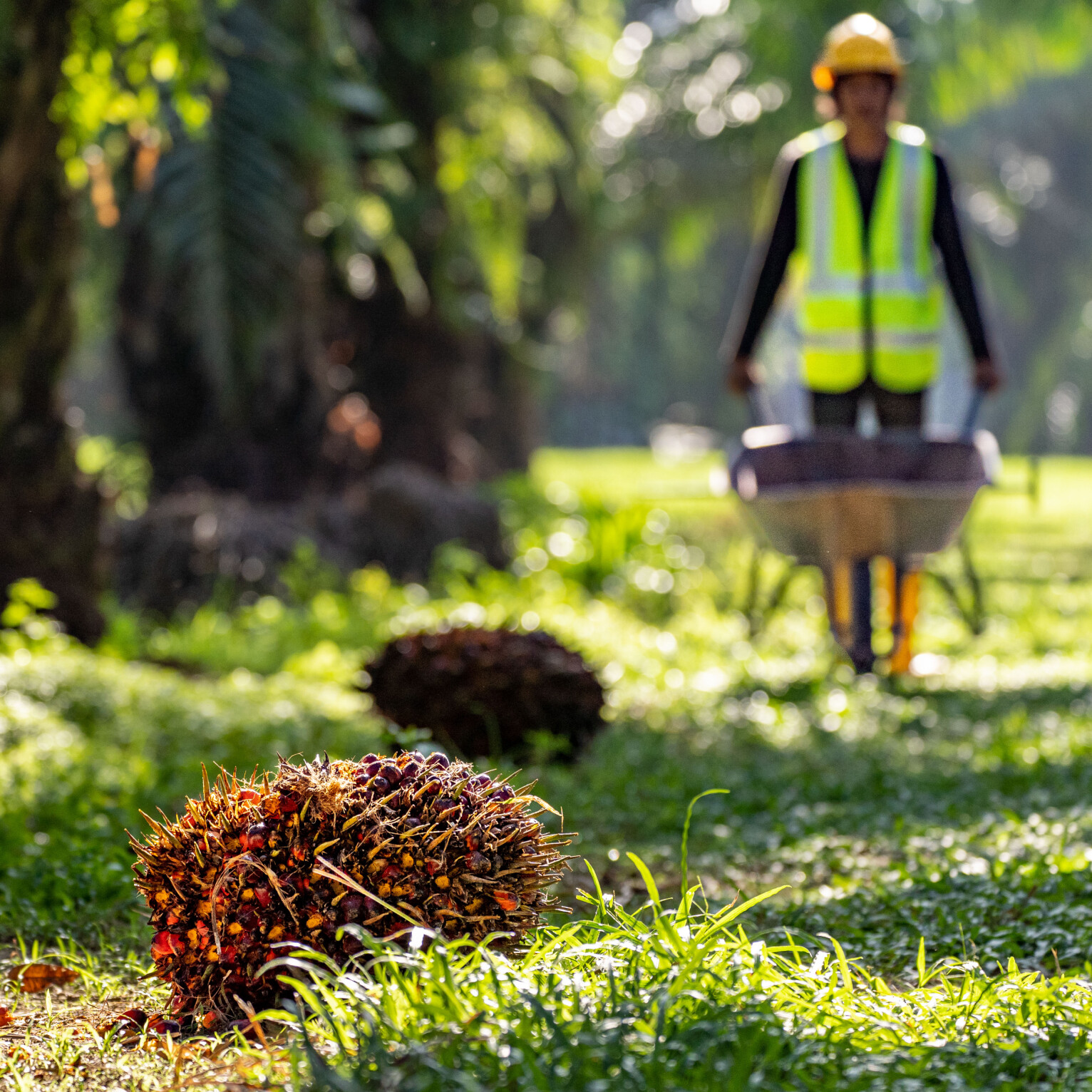Palm oil

© RSPO, Sayan Chuenudomsavad
Challenges in cultivation
Palm oil is extracted from the pulp of oil palm fruits. For the countries of origin in Asia and Latin America, the raw material is an important economic export commodity. However, palm oil production can be associated with environmental problems such as deforestation and negative impacts on local communities. We therefore focus on using controlled agricultural practices.
Replacing palm oil with other vegetable oils is not a better alternative. Oil palms are very high-yielding, meaning that other oil plants would require significantly more land to produce the same amount.
Responsible sourcing
Palm oil can be produced responsibly if it is cultivated in suitable areas and with consideration for the environment and local communities. An essential aspect of this is the protection of forest areas. As in all our raw material supply chains, we are committed to ending deforestation and the destruction of other important ecosystems in the palm oil industry.
Certified palm oil
Storck joined the Roundtable on Sustainable Palm Oil (RSPO) back in 2011. This was founded on the initiative of the World Wide Fund for Nature (WWF) as a central organisation to establish global standards for sustainably certified palm oil. As a member of the RSPO, we are committed to sustainable cultivation methods and compliance with environmental and social standards in palm oil production. In 2011, we committed to increasing the amount of RSPO-certified palm oil we use each year and to using only sustainably produced palm oil from 2015 onwards. We have fulfilled this commitment ever since. We purchase our palm oil from suppliers with responsible business practices with whom we have long-standing business relationships.
The RSPO standard sets out more than 160 principles and criteria for certification, including seven core principles:
-
Act ethically and transparently
-
Act legally and respect rights
-
Optimise productivity, efficiency, other impacts and resilience in cultivation and processing
-
Respect community and human rights
-
Support and integrate smallholders
-
Respect workers' rights and conditions
-
Protect, preserve and improve the environment and ecosystems
These core principles are primarily aimed at palm oil producers, who have a direct impact on the environment and society through sustainable cultivation and processing methods. However, the challenges within the entire palm oil supply chain are multifaceted and complex. Accordingly, joint action by all stakeholders is required to effectively achieve the RSPO's goals.
Making this joint commitment transparent and measurable is a concern of the RSPO. To this end, the concept of “shared responsibility” was introduced. A key instrument of this is the RSPO Shared Responsibility Scorecard, which systematically records and evaluates the progress and performance of members who do not produce palm oil themselves. Storck is one of the companies that is regularly assessed using this scorecard and has achieved full marks every year since 2023. The assessment takes into account, among other things, the amount of RSPO-certified palm oil purchased or processed, commitment to human rights and fair working conditions, and reporting.
Learn more about the Roundtable on Sustainable Palm Oil (RSPO)

© RSPO
The Mariposa crowdfunding initiative is a project run by one of our long-standing suppliers, which we have been supporting for five years. Mariposa's goal is to enable smallholders in Latin American palm oil-producing countries such as Honduras, Colombia and Guatemala to produce palm oil sustainably. As part of the project, over 6,000 farmers have received practical training. To simplify crop management, an app has been introduced to help smallholders monitor their activities in the fields and document the use of pesticides.
Why we use palm oil
The choice of a particular oil for the production of a food product is determined by its functional properties. Every fat has a different composition and therefore behaves differently. Palm oil offers ideal consistency and temperature stability for the products in which it is used. It can be processed in liquid form and remains creamy and firm in the finished product, even when exposed to temperature fluctuations. Palm oil owes these properties, as well as its neutral smell and taste, to the special composition of its fatty acids. Other vegetable fats, such as sunflower oil, lack these properties. They could only be achieved through fat hardening, a chemical processing method. Other possible alternatives contain undesirable allergens.
We have therefore made a conscious decision to use palm oil and use it, for example, in the production of fillings for our confectionery. Here, it is needed to achieve a particularly good quality via the ideal melting point. For our chocolates we only use cocoa butter as a vegetable fat and no palm oil.


